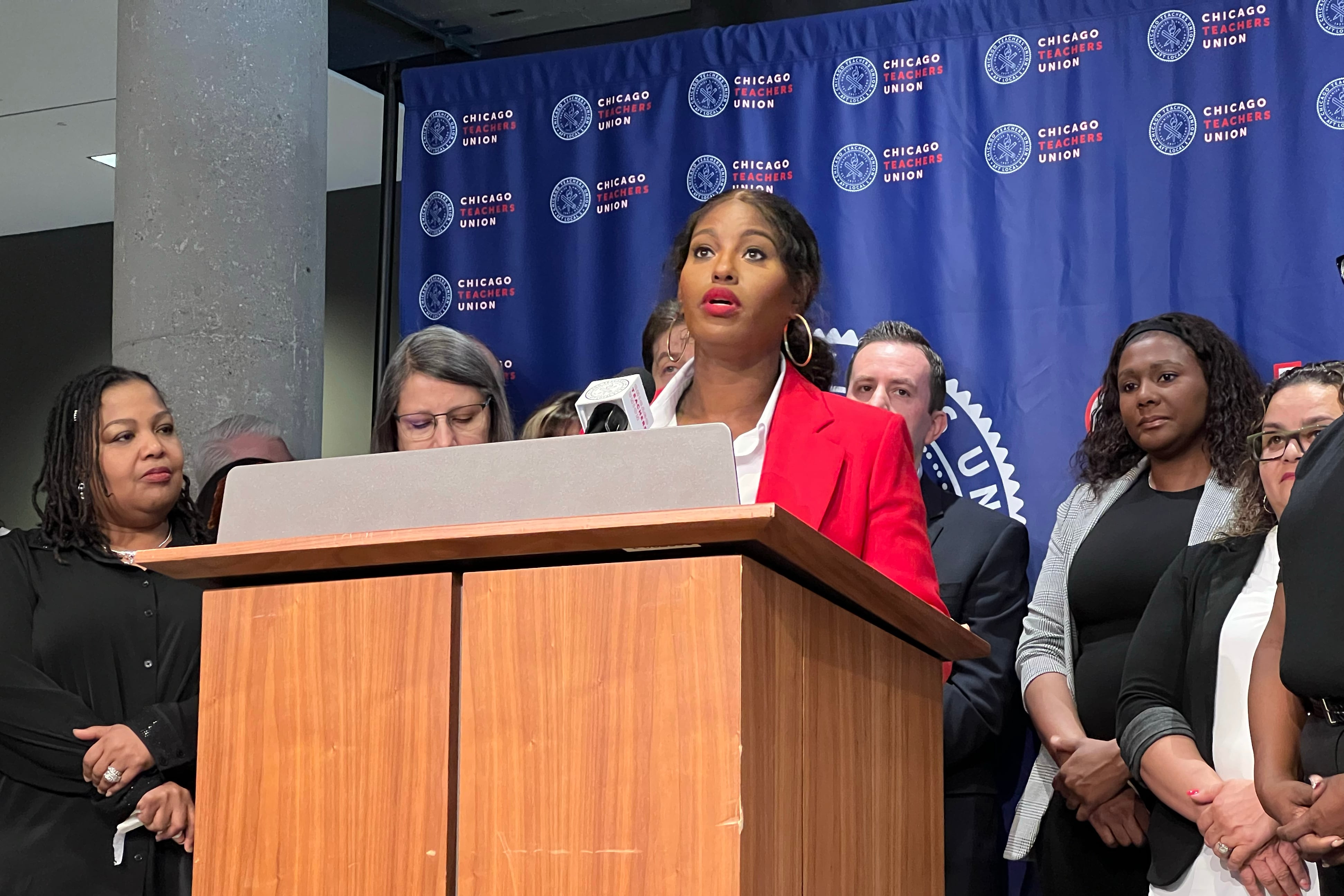Sign up for Chalkbeat Chicago’s free daily newsletter to keep up with the latest education news.
The Chicago Board of Education has finalized the new Chicago Teachers Union contract, which will cover roughly 30,000 educators and support staff.
The board’s Thursday vote puts the contract into effect; the union’s membership ratified the contract earlier this month with a nearly unanimous vote to approve it from 85% of union members.
The four-year contract is expected to cost a total of $1.4 billion. It includes class size limits, requirements to hire hundreds of new staff, including more teacher assistants, and ten additional minutes of preparation time for elementary school teachers — which at some schools could also mean ten more minutes of recess.
The vote came about a year after bargaining began. Negotiations started with cordiality and optimism, but grew contentious amid a bruising battle between the union and district that helped lead to the firing of Chicago Public Schools CEO Pedro Martinez.
But those tensions were set aside on Thursday.
In public comments to the board, CTU President Stacy Davis Gates noted that reaching an agreement did not require a strike vote or a strike, as it did in 2012, 2016, and 2019.
“That is a significant development,” she said.
Davis Gates said the contract will require a partnership between the union and district leaders to implement it well.
The school board also approved an amendment to this school year’s budget, adding $139 million in surplus development funds it received from the city, which officials said would help pay for the teachers contract as well as a future contract with the principals union. Those funds come from the city’s Tax Increment Financing, or TIF, districts, which are meant to spur development. As expected, the amendment does not mention using the money to pay the city back for a highly debated pension payment for non-teaching staff.
Though the first year of the contract, which is retroactive to last July, is paid for, there are questions about whether the district has the funding to pay for the remaining years through June 2028.
Davis Gates said the district must work to find a solution to any budget constraints, including advocating for more state funding.
District officials are expecting a deficit of roughly $500 million next school year. District leaders have said they plan to advocate for additional funding, and several school board members plan to travel to Springfield soon. After a presentation about teacher recruitment and hiring, board Vice President Olga Bautista asked how the district’s financial situation could impact staffing levels and recruitment efforts.
Ben Felton, chief of talent for CPS, and Martinez said district leaders are trying to advocate for more state funding. But Martinez, who said he’s not optimistic the state will come through, has also pushed for more surplus funding from TIF districts.
“It comes down to additional revenue for the school district to be able to sustain it or having to consider painful choices and painful cuts,” Felton said.
Reema Amin is a reporter covering Chicago Public Schools. Contact Reema at ramin@chalkbeat.org.






